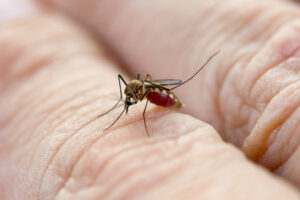Every 12 months, thousands and thousands of humans internationally agreement risky illnesses like malaria, dengue fever, Zika virus, and West Nile virus from mosquitoes, one of the most bothersome pests. A world without mosquitoes is a sizeable fantasy due to their public fitness danger. What would happen if mosquitoes disappeared? This intriguing concern unleashes Pandora’s container of ecological, environmental, and fitness repercussions past itching chew remedy and sickness prevention.
Since 100 million years in the past, mosquitoes have been essential to ecosystems. Their speedy absence would have an effect on many species and ecological methods. It’s enticing to assume a mosquito-free utopia, but the reality is more complicated. Mosquitoes pollinate vegetation that relies on them and feed birds, bats, amphibians, and other bugs. Mosquito removal should disrupt food structures and cause ecological imbalances.
Eliminating mosquito-borne diseases should have massive economic and public fitness advantages. Tropical and subtropical nations, which spend a lot on those diseases, might also use that cash for other fitness desires. The absence of mosquitoes may also permit different, extra-resilient vectors to get up, bringing new and unexpected international health issues.
We will study the ecological, environmental, and health results of mosquito extinction. We paint an entire picture of lifestyles without those little however effective insects via reviewing medical facts and professional viewpoints.
If Mosquitoes Went Extinct?
The Role of Mosquitoes in the Ecosystem
Pollination and Plant Life
Some mosquitoes don’t feed on blood, even though they are known for sucking it up. In fact, both male and female mosquitoes get most of their food from nectar and other plant sugars. Mosquitoes become pollinators by accident during this process. Some plants, like some types of orchids and other flowering plants that grow in swampy areas, depend on mosquitoes to spread their pollen. With certain smells and shapes that make it easier for pollen to move, these plants have evolved to draw mosquitoes.
There might be a lot of trouble for these plants to reproduce if bugs disappeared. If mosquito-dependent plant species go extinct or become less common, it will not only lower biodiversity but also have an effect on the ecosystems that depend on these plants. This could cause a chain reaction of changes in the environment that will impact the plants and animals that depend on these plants for food, housing, and other things.
Food Source for Other Species
Mosquitoes are very important to the food chain, especially when they are young and adults. Water animals like fish, amphibians, and other aquatic species depend on mosquito eggs for food. Many animals, including frogs, salamanders, and some fish (like guppies and goldfish), depend on mosquito eggs as a main source of food. The rapid disappearance of mosquito larvae could make it hard for these predators to find food, which could cause populations to drop.
A lot of different animals, like birds, bats, spiders, dragonflies, and other insects, eat adult mosquitoes that are on land. For example, bats eat a huge number of mosquitoes and other flying bugs every night. It would also affect birds, especially those that eat bugs. If the number of mosquitoes drops, these predators might have to look for other food sources. This could upset local ecosystems and make the relationships between predators and prey less stable.

Not only would getting rid of mosquitoes hurt the animals that eat them, but it might also have effects on the environment as a whole. Because there might be less prey available, predators might change or stop eating, which could affect other species and cause too many insects and pests to live in one area. This complicated web of interactions shows how important mosquitoes are for keeping the ecosystem in order, even though they are bad for people’s health.
Mosquitoes and Disease
Vector for Diseases
Mosquitoes are well-known for their function as carriers of some of the most perilous diseases worldwide. By means of their bites, they spread microorganisms responsible for diseases such as malaria, dengue fever, Zika virus, chikungunya, and West Nile virus. These illnesses have significant effects on worldwide public health, especially in tropical and subtropical areas where mosquitoes are most common.
Anopheles mosquitoes are responsible for transmitting malaria, a highly lethal disease that causes hundreds of thousands of fatalities each year. This disease primarily affects young children in Africa. Aedes mosquitoes, however, are main carriers for dengue, Zika, and chikungunya, all of which can lead to substantial illness and, in certain instances, death.
The eradication of mosquitoes would unquestionably result in a significant reduction in the prevalence of these diseases. This has the potential to mitigate the strain on healthcare systems in impacted areas, decrease healthcare expenditures, and enhance overall quality of life. Nevertheless, eliminating mosquitoes may result in unforeseen outcomes, such as the emergence of other carriers that could occupy the ecological role previously held by mosquitoes, perhaps resulting in the transmission of different diseases.
Human Health Impact
Mosquito-borne infections have a significant and immediate effect on human health. Malaria, in isolation, induces symptoms such as elevated body temperature, shivering, and an illness resembling the flu, which can progress to serious consequences and mortality if not properly addressed. Dengue fever, commonly known as “breakbone fever” because of its intense agony, has the potential to progress into dengue hemorrhagic fever, a more critical variant that can result in death. If a pregnant woman becomes infected, the Zika virus can result in serious birth abnormalities, although typically presenting very minor symptoms in adults.
Mosquito-borne diseases not only have physical health effects but also have substantial social and economic ramifications. Illness can impede production, as individuals who are affected are frequently unable to engage in work or attend school. In addition, they impose a significant economic burden on both families and healthcare systems, as a result of the expenses associated with treatment and preventive measures, such as the provision of insecticide-treated nets and the implementation of mosquito control programs.
The eradication of mosquitoes would result in a substantial improvement in human health, particularly in areas extensively affected by these illnesses. The decreased prevalence of sickness would enhance life span and quality of life, and financial resources might be reallocated from disease control to other domains of advancement. However, meticulous deliberation and strategic preparation would be necessary to guarantee that the lack of mosquitoes does not give birth to new health complications, thereby ensuring that the advantages of their elimination are entirely achieved without any unanticipated adverse effects.
Benefits of Mosquito Extinction
Reduction in Disease Transmission
Eliminating mosquitoes would have the major advantage of drastically reducing the spread of many fatal diseases. Primary vectors of the viruses that cause malaria, dengue fever, chikungunya, Zika virus, and West Nile virus are mosquitoes. Eliminating mosquitoes would stop the diseases from spreading and maybe save millions of lives annually as well as a great deal of pain and suffering.
Just malaria kills hundreds of thousands of people a year, mostly in sub-Saharan Africa among children under five. When mosquitoes vanished, malaria transmission would stop, removing the need for expensive and involved management strategies include bed nets sprayed with insecticide, residual spraying inside, and antimalarial drugs. Comparably, dengue, which can result in hemorrhagic fever and has severe flu-like symptoms, would no longer be a concern. Chikungunya outbreaks, which are notorious for causing crippling joint pain, would end and the terrible birth abnormalities linked to the infection would be avoided.
The enormous advantages for public health would enable the healthcare systems in impacted areas to better allocate resources and concentrate on other urgent health concerns. The estimated billion-dollar yearly worldwide economic cost of diseases spread by mosquitoes would also sharply decline, offering economic respite and improving development prospects in areas that are vulnerable.

Enhanced Quality of Life
Extinction of mosquitoes would improve people’s quality of life everywhere, even beyond the decrease in disease transmission. Aside from being annoying, mosquito bites can result in allergic reactions that can range from little discomfort to a lot of swelling and inflammation. If mosquitoes disappeared, so would the pain and irritation that their bites produced, which would make outdoor activities more pleasurable and enhance general health.
Where diseases spread by mosquitoes are common, the dread and worry around these diseases would go away. People might travel, go outside, and go about their daily business without fearing illness all the time. Children would especially gain from this, as they are sometimes the ones most susceptible to diseases spread by mosquitoes and could play and learn without running the danger of getting serious infections.
Benefits to the economy would go beyond savings in healthcare. Communities would save money on insecticides, repellents, and larvicides—all of the mosquito control remedies. A growth in tourism would probably bring more money and development prospects to places that suffer from high mosquito populations and illness risk.
In conclusion, people all over the world would live in better quality of life and disease transmission would be significantly reduced if mosquitoes disappeared. The immediate health and economic advantages for people make a strong argument for looking into ways to lessen the effects of these pests, even if the ecological consequences would need careful thought.
Case Studies
Success Stories in Mosquito Control
Several countries and regions have implemented successful mosquito control programs that have significantly reduced the prevalence of mosquito-borne diseases, offering valuable insights into effective strategies.
Cuba: Cuba is renowned for its comprehensive and effective mosquito control program, particularly in combating dengue fever. The country’s approach includes rigorous surveillance, community involvement, and extensive use of biological control methods. Regular inspections of homes and public spaces, along with prompt treatment of detected mosquito breeding sites, have kept mosquito populations in check and minimized outbreaks.
Singapore: Singapore has made remarkable strides in controlling Aedes mosquitoes, which spread dengue and Zika viruses. The National Environment Agency (NEA) employs an integrated vector management strategy, combining public education, regular fogging, and the release of Wolbachia-infected mosquitoes. Wolbachia is a naturally occurring bacterium that reduces mosquitoes’ ability to transmit viruses. The program has led to a significant decline in the mosquito population and a reduction in dengue cases.
Brazil: In Brazil, the release of genetically modified (GM) mosquitoes, known as OX513A, has shown promise in reducing Aedes aegypti populations. These GM mosquitoes are engineered to produce offspring that die before reaching adulthood. Field trials in several Brazilian cities have reported over 90% reductions in the local mosquito population, leading to decreased transmission of dengue, Zika, and chikungunya.

Failed Attempts and Lessons Learned
While there have been notable successes, mosquito control efforts have also faced challenges and failures, offering crucial lessons for future initiatives.
Sri Lanka: Sri Lanka successfully eradicated malaria in the mid-20th century through widespread use of DDT and improved healthcare infrastructure. However, complacency and reduced vigilance led to a resurgence of malaria in the 1960s and 70s. This highlighted the need for sustained efforts and continuous monitoring even after initial success. Eventually, Sri Lanka achieved malaria-free status again in 2016, emphasizing the importance of maintaining robust and adaptable control programs.
India: India has struggled with consistent mosquito control, particularly concerning malaria and dengue. Despite various initiatives, including bed net distribution and indoor residual spraying, the country faces logistical challenges and varying levels of program implementation across states. Issues such as insecticide resistance and inadequate public health infrastructure have impeded progress. India’s experience underscores the need for coordinated, multi-faceted approaches and the importance of addressing infrastructural and socio-economic barriers.
Florida Keys, USA: In the Florida Keys, the introduction of GM mosquitoes to combat Aedes aegypti faced public opposition and regulatory hurdles. Despite promising results in reducing mosquito populations, the project encountered resistance due to environmental and ethical concerns. This case highlights the necessity of engaging and educating communities, addressing public fears, and ensuring transparent regulatory processes when implementing novel mosquito control methods.
These case studies illustrate that while mosquito control can yield significant public health benefits, it requires sustained, adaptable efforts, community engagement, and careful consideration of environmental and ethical factors. Successes provide valuable models to replicate, whereas failures offer critical lessons to refine future strategies.
Final Thoughts
Recap of Key Points
The extinction of mosquitoes, while seemingly a dream come true for those plagued by their bites and the diseases they transmit, is a complex issue with far-reaching implications. Mosquitoes play crucial roles in ecosystems, acting as pollinators and serving as a vital food source for many species. Their sudden disappearance could disrupt food chains and lead to ecological imbalances. However, the potential benefits are substantial, particularly in terms of reducing the transmission of deadly diseases like malaria, dengue fever, and Zika virus. This could lead to significant improvements in public health and economic savings, as well as enhanced quality of life for millions of people worldwide.
Considerations and Future Directions
While the hypothetical extinction of mosquitoes offers clear advantages in disease reduction and improved human well-being, it also poses significant ecological challenges. The success stories in mosquito control from countries like Cuba, Singapore, and Brazil demonstrate that effective, integrated strategies can significantly mitigate the impact of these pests without eradicating them entirely. Conversely, the failures and lessons learned from places like Sri Lanka, India, and the Florida Keys highlight the importance of sustained effort, community engagement, and careful planning in mosquito management.
Moving forward, it is essential to balance the benefits of mosquito control with the need to preserve ecological integrity. Innovative solutions, such as the use of genetically modified mosquitoes and Wolbachia-infected mosquitoes, offer promising avenues for reducing disease transmission without causing ecological harm. Public education, robust regulatory frameworks, and continuous research are crucial to developing and implementing effective mosquito management strategies.
In summary, while the extinction of mosquitoes might seem like an ideal solution to the problems they cause, it is a multifaceted issue that requires careful consideration of both ecological and human health impacts. By learning from past experiences and leveraging new technologies, we can work towards a future where the burden of mosquito-borne diseases is significantly reduced, and ecological balance is maintained.
